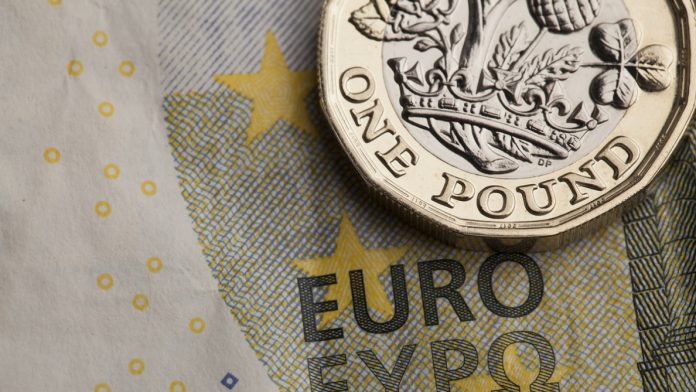The pound finished the previous week 1.3% higher versus the euro. The pound—euro exchange rate climbed to an almost 2-year high of €1.1808 after Parliament voted against a no deal Brexit. However, sterling lost its momentum towards the end of the week and was trading lower at the start of the new week.
| What do these figures mean? |
|---|
| When measuring the value of a pair of currencies, one set equals 1 unit and the other shows the current equivalent. As the market moves, the amount will vary from minute to minute. If the euro amount increases in this pairing, it’s positive for the pound. Or, if you were looking at it the other way around:1 EUR = 0.87271 GBPIn this example, €1 is equivalent to approximately £0.87. This measures the euro’s worth versus the British pound. If the sterling number gets larger, it’s good news for the euro. |
Last week the UK House of Commons voted against Prime Minister Theresa May meaningful vote for a second time. Ministers also voted in favour of avoiding a no deal Brexit and in favour of an extension to Article 50. Theresa May plans to bring her vote back to Parliament for a third time this week, possibly as soon as Tuesday.
Should her Brexit deal pass, Theresa May will request a short technical extension to Article 50. Should her deal be defeated again, Theresa May will leave the terms of the extension to the EU. The EU will only grant an extension if they are presented with a good reason to do so, such as a workable plan or even a second referendum. Hopes of a second referendum and Brexit not ever actually happening kept the pound elevated.
Whilst pound traders cheered the diminished probability of a no deal Brexit last week, Brexit uncertainty continues to loom over the UK economy and the currency.Brexit developments are set to cause further volatility in the pound at the beginning of this week.
| Why is a “soft” Brexit better for sterling than a “hard” Brexit? |
|---|
| A soft Brexit implies anything less than UK’s complete withdrawal from the EU. For example, it could mean the UK retains some form of membership to the European Union single market in exchange for some free movement of people, i.e. immigration. This is considered more positive than a “hard” Brexit, which is a full severance from the EU. The reason “soft” is considered more pound-friendly is because the economic impact would be lower. If there is less negative impact on the economy, foreign investors will continue to invest in the UK. As investment requires local currency, this increased demand for the pound then boosts its value. |
This week also sees a monetary policy announcement from the Bank of England. However, with Brexit uncertainty clouding vision, the central bank will continue to have their hands tied.
Eurozone Data Supports Euro
The euro gained strength in the latter part of the previous week following several encouraging data releases for the bloc. Eurozone industrial production showed signs of improvement, increasing 1.4% month on month. Friday’s inflation reading for the region also showed an improvement, albeit small. Eurozone inflation picked up from 1.4% to 1.5% in February. Whilst this is still a significant distance from the central bank’s 2% target, it is at least moving in the right direction. The European Central Bank will be more comfortable raising interest rates with stronger inflation.
| Why do raised interest rates boost a currency’s value? |
|---|
| Interest rates are key to understanding exchange rate movements. Those who have large sums of money to invest want the highest return on their investments. Higher interest rate environments tend to offer higher yields. So, if the interest rate or at least the interest rate expectation of a country is relatively higher compared to another, then it attracts more foreign capital investment. Large corporations and investors need local currency to invest. More local currency used then boosts the demand of that currency, pushing the value higher. |
There is no high impacting eurozone data on Monday. However, the euro could react badly to the unrest in France over the weekend as yellow vest protests turned violent. This was the 18th consecutive Saturday of yellow vest protests as President Macron looks to be increasing control of his country.
This publication is provided for general information purposes only and is not intended to cover every aspect of the topics with which it deals. It is not intended to amount to advice on which you should rely. You must obtain professional or specialist advice before taking, or refraining from, any action on the basis of the content in this publication. The information in this publication does not constitute legal, tax or other professional advice from TransferWise Inc., Currency Live or its affiliates. Prior results do not guarantee a similar outcome. We make no representations, warranties or guarantees, whether express or implied, that the content in the publication is accurate, complete or up to date. Consult our risk warning page for more details.
This article was initially published on TransferWise.com from the same author. The content at Currency Live is the sole opinion of the authors and in no way reflects the views of TransferWise Inc.





